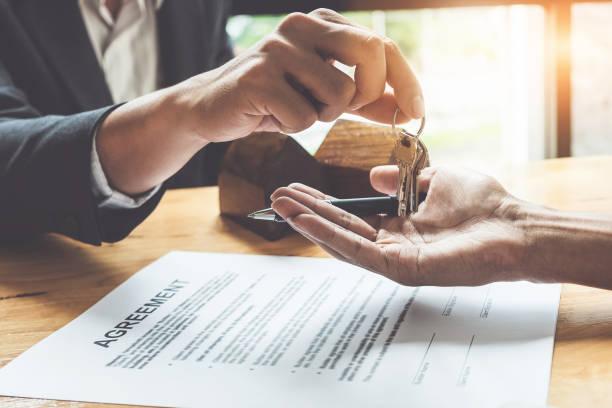The closing is the final step in a real estate sale where the buyer obtains title to the property. The time between an offer’s acceptance and the closing date—evidenced by a deed from the seller or stock certificate for a cooperative apartment –is filled with activity.
In New York, most buyers and sellers hire an attorney to represent their interests in the real estate transaction. The attorneys negotiate the contract, who will pay what fees and handle adjustments of items such as taxes for the closing. The seller’s attorney is responsible for drafting the initial contract of sale, clearing title, preparing the deed and tax transfer documents, obtaining any payoffs, and gathering the appropriate checks to pay liens or judgments found in the title report. The purchaser’s attorney is responsible for reviewing title, having the purchaser bring the correct checks to the closing table, to explain the lender’s documents that the purchaser is signing, and to ensure that the title company is insuring the purchaser’s title to the property. Both attorneys explain the documents to their clients before obtaining their signatures, draft specific affidavits required by the title company, and otherwise confirm the required financial documents have been provided.
Property Inspection
An inspection will need to be conducted by the buyer, to learn the condition of the home, condo or coop. This is a delicate point in the real estate transaction, because if defects are discovered, the buyer may rescind the offer, ask for a reduced purchase price, or condition the sale on the seller making specific repairs. Otherwise the buyer takes the property “as is.”
Contracting and Down Payment
After the parties agree on the terms, the contract is executed and the buyer provides the down payment, which is held by the seller’s attorney in escrow. If not a cash sale, the buyer then officially submits the loan application to obtain a mortgage. If the sale involves a coop, a package has to be submitted to the coop board for approval.
Title Search, Lien Review and Reporting
A title search must be conducted to determine whether there are any existing liens, judgments, or violations against the property or the seller. It also ensures that the seller is the legal owner entitled to sell the property. A report of the findings is provided to the parties -opening the door to further negotiations and possible pitfalls.
The Closing Process
Ideally, all of the complications are resolved before the parties get to the closing table, although occasionally an issue will arise during the walk through of the property that will need to be addressed. The closing is typically attended by the seller, purchaser, their respective attorneys, the title closer, the bank attorney (if the purchaser has obtained financing) and the real estate agents. However, post COVID, closings have looked a little different. Real estate closings can be conducted by mail, with parties pre-signing documents.
The title closer will make sure that any mortgage, judgments or liens are paid off and that any new mortgage will be recorded along with the deed. The purchaser will leave with only a copy of the deed as it will be recorded by the title closer in the county clerk’s office once the closing has concluded. The title company insures the purchaser as to the ownership –and also the lender that their mortgage has priority and is valid.
Signature, Payment and Transfer of Ownership
The bank attorney provides the documentation required by the bank to be signed by the purchaser and provides funding only when the title company provides a loan policy to the lender. Once the title closer is satisfied with the documentation and has provided the title policies to the purchaser and lender, the closing is officially concluded. Only then will the purchaser be provided with the keys and the seller receives the checks.





